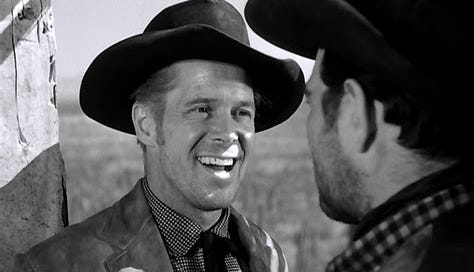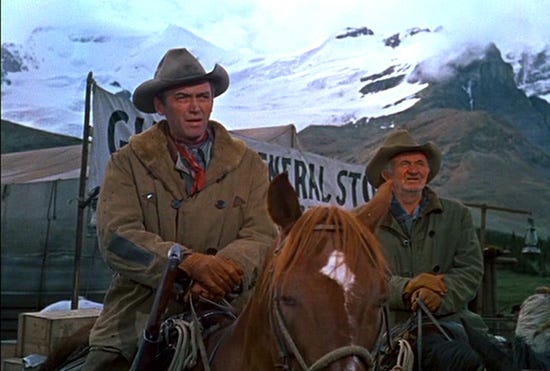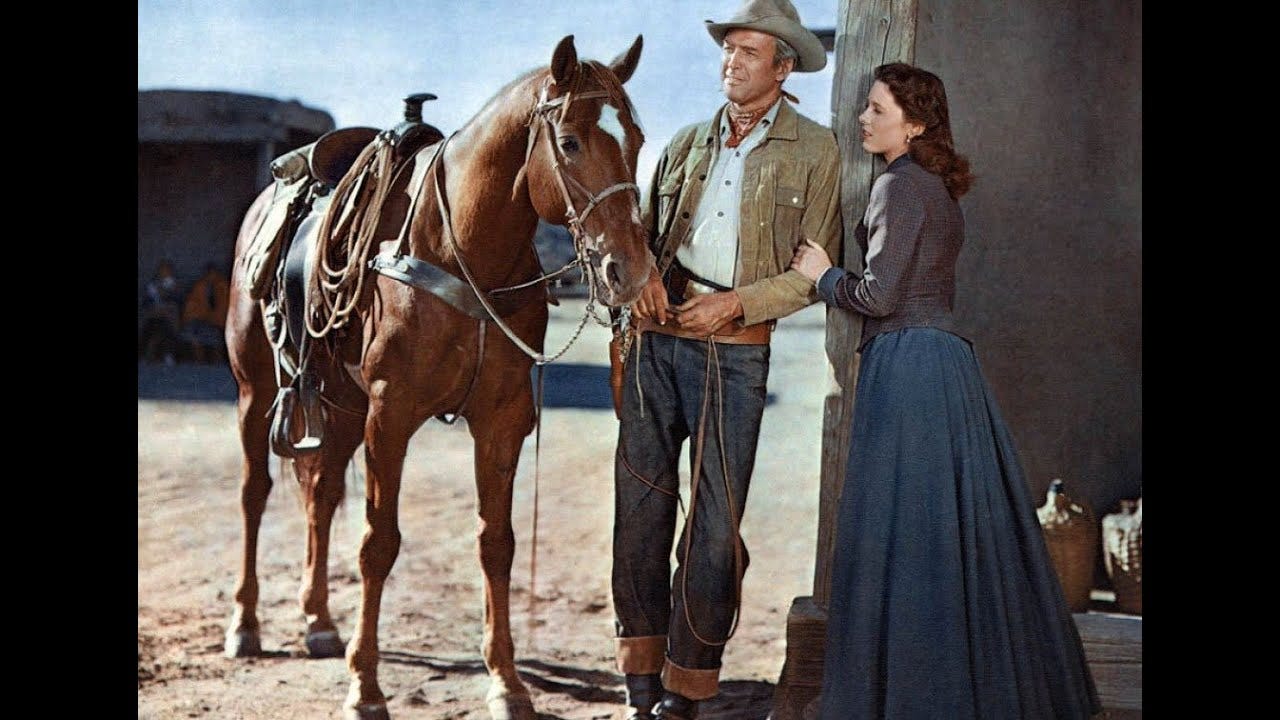Pick up The Last Exile and pre-order Nolan Chase’s A Lonesome Place for Murder from Bookshop.Org (US)
Or pre-order from Indie Bookstores (CA)
Or pre-order from Barnes and Noble
Jimmy Stewart probably starred in more masterpieces than any other Hollywood star. He worked with every great director of his era—Capra, Hitchcock, Cukor, Lubitsch, Ford, Aldrich, Siegel…and Anthony Mann.
Stewart made eight movies with Mann—five westerns, all great, as well as Thunder Bay, The Glenn Miller Story, and Strategic Air Command.
The Mann westerns show a side of Stewart he rarely got to display, and which the genre wasn’t known for—rounded, complex characters who are equal parts savvy and naive, law-abiding and vengeful, callous and caring. These are atypical westerns, closer to crime films in a sense, yet also exemplars of the genre. Each is about a small group of people playing out a very intense personal drama for life and death in a vast and imposing terrain.
Criterion just released a 4K version of Winchester ’73, arguably the best of their collaborations and the only western in black and white. The print looks terrific. It prompted Carly and I to go through the other four over a weekend, and then circle back and rewatch Winchester.
Winchester ‘73
On the surface, Winchester ’73 is about a legendary gun—a repeating rifle called “one in a thousand” because it’s perfectly balanced. The film starts with Stewart arriving in Dodge City looking for Dutch Henry Brown (Stephen McNally), a bad guy who he has Business and/or History with. Since the town marshal is Wyatt Earp, Stewart opts to enter the shooting contest that Brown is involved in. He wins, is cheated out of the rifle…and things go from there.
The story only sometimes follows Stewart’s pursuit of Brown. Mostly it follows the rifle, passing from hand to hand, bringing bad luck and death to everyone who claims it. It’s a brilliantly slippery symbol that clearly made the Winchester company happy, yet subversively symbolizes all the cruelty and misery of American history.
A terrific Dan Duryea shows up as an outlaw named Waco Johnny Dean, acting like he escaped from a Jim Thompson novel. And Shelley Winters is great as a woman whose husband turns out to be a coward.
Bend of the River
Stewart is a gunfighter escorting a wagon train of supplies to a settler community. The Gold Rush has hit, and those supplies are now worth far more than they paid for them—worth killing for.
Arthur Kennedy gives two great performances in the Mann westerns. He’s terrific as Emerson Cole, a fellow gunfighter whom Stewart saves from a necktie party. He’s clearly not as decent a man as Stewart, but just what his breaking point will be is fascinating to watch. Kennedy doesn’t have a remarkable face but he’s terrific in everything I’ve seen him in.
The Naked Spur
Stewart is a bounty hunter after criminal Robert Ryan, who’s abetted by a naive girlfriend played by Janet Leigh. To capture Ryan, Stewart needs the help of a prospector (Millard Tate) and a dishonorably discharged soldier (Ralph Meeker).
On the surface, Ryan is a dumb goof, the kind of early Jack Nicholson outlaw. Secretly he’s playing all of them against each other, slowly dissolving the partnership Stewart has formed. He casually mentions to Tate that he knows where gold is, starts hinting to Meeker that the reward would split better two ways… It’s a great villain performance.
And by the end Stewart isn’t just a stalwart western hero, but a man so desperately vengeance-obsessed he’d sacrifice anything to achieve his goal.
The Far Country
Stewart plays a fortune hunter bringing a herd of cattle to Dawson City with his buddy (Walter Brennan). They lock horns with a corrupt power broker (John McIntyre) who also happens to be the judge. McIntyre is a great tyrant who has all the advantages—if he can’t use the law to steal land from the locals, he’ll hire assassins.
What’s interesting about Far Country is how indifferent Stewart is as McIntyre keeps pushing. He’s out for himself, clearly disenchanted with civilization, and as long as he can make a buck, he doesn’t care what happens to the town. Until it’s happening to him, too.
The Man From Laramie
The most complex and the largest in scope of the Mann/Stewart films, Man From Laramie is as much a mystery as a western. Someone is selling rifles to the Apaches, and Stewart is determined to find out why.
Soon he’s drawn into an oedipal family conflict worthy of a Ross Macdonald novel. His wagons are burned and mules shot by the spoiled son (Alex Nicol) of an aging cattle baron (Donald Crisp). Arthur Kennedy plays the tough and capable foreman of the baron’s empire. He’s also falling in love with the baron’s niece (Cathy O’Donnell). Kate Canaday plays the rival rancher who was once engaged to the baron. One of them is an arms dealer, and all of them have hidden agendas. Stewart gets to act like a buckskin Lew Archer and find out why.
Most of these are written by Borden Chase (Red River), and feature the same supporting cast—Rock Hudson, Millard Tate, John McIntyre and Arthur Kennedy, among others. Also, Stewart rides the same horse in all of them—”Pie.”
Best of all, every one of these is around 90 minutes. They’re compact, artful, intense, and don’t overstay their welcome.
Hopefully Criterion reissues them all.
Pre-order Nolan Chase’s A Lonesome Place for Murder from Bookshop.Org (US)
Pre-order from Barnes and Noble (US)
Or pre-order from Indie Bookstores (CA)









Great post. My favorite thing about Borden Chase: he's the only screenwriter to have a cocktail named after him.
Wonderful to read about these James Stewart westerns! He added such character richness to the plots.